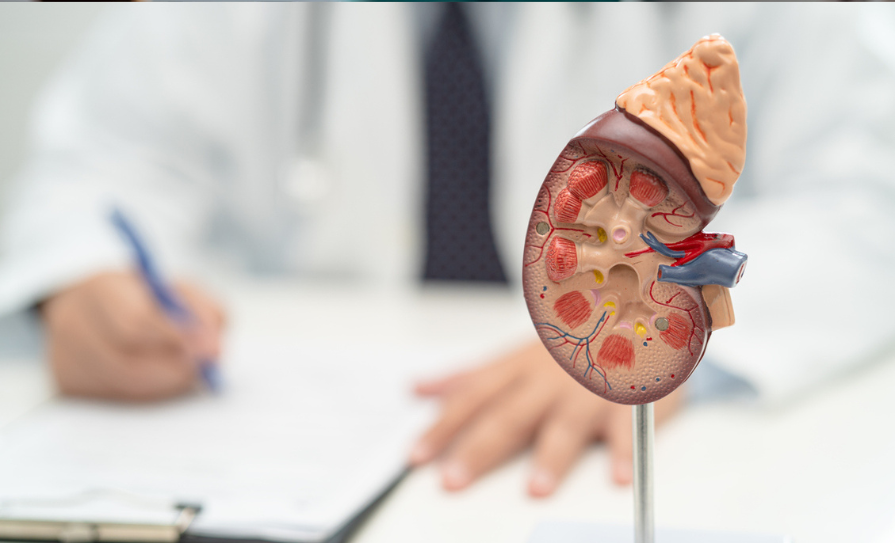
Credit: istock.com/sasirin pamai
The Irish Nephrology Society (INS) Annual Scientific Meeting 2025 carried a clear message of unity, progress, and hope for the future of renal services in Ireland, as well as a heavy focus on clinical updates and best practice guidance. The two-day event began with a home therapies pre-course exploring various aspects of peritoneal dialysis provision, as well as a practical workshop covering dialysis in the home. The pre-course was followed by a diverse array of plenary lectures, oral sessions, a panel discussion, and poster presentations, which were delivered by a notable line-up of national and international experts.
In his welcome address to delegates, INS President Prof Donal Reddan, Consultant Nephrologist, Galway University Hospital, provided information on developments taking place within the INS at both a national and international level.
“In terms of engagement, we’ve now appointed four domain leads [in training and education; research and innovation; clinical affairs; and advocacy and public relations] for the organisation,” he told delegates, “I’d encourage you all to liaise with these people.” Prof Reddan also outlined the Society’s plans to align with the European Renal Association (ERA), in addition to various other organisations and advocacy groups. “It’s very important that we have a coordinated message so that we can develop the services and work closely with the HSE,” he told the conference.
Speaking to the Medical Independent (MI), Prof Reddan commended the large attendance at the meeting. He also praised the “excellent quality” of the talks, which spanned topics ranging from the gut-kidney axis, discussed by Dr James Gleeson, Bichat–Claude Bernard Hospital, Paris, France, to updates in autosomal dominant tubulointerstitial kidney disease from Prof Anthony J Bleyer, Wake Forest University, North Carolina, US, and novel therapeutic agents for the management of lupus nephritis by Dr Sarah Moran, Consultant Nephrologist, Cork University Hospital.
Elaborating on developments within the INS, Prof Reddan told MI the Society was “working through the governance framework that was implemented last year by Prof Liam Plant”, Chair of the INS board and immediate Past-President.
This includes putting patients and members of the public on the board.
“Patient and public involvement is key,” he said.
Prof Reddan added that his own “big priority” as President is to implement and develop a “more formal membership structure” for the INS, both nationally and within Europe. “With their consent, consultants registered for this meeting will be put forward for ERA membership,” he said.
“Next, we’ll move on to the trainees and so on. This will help us grow and move forward as a Society. We will also be working on a political level within Europe to get CKD [chronic kidney disease] more recognition and funding.”
Prof Reddan also expressed his delight at the attendance of Dr Colm Henry, Chief Clinical Officer of the HSE, at the meeting.
He said that Dr Henry’s address and presence for the panel discussion were some of his personal highlights from the event.
“It was fantastic to have such a contribution from Dr Henry and such support from him,” Prof Reddan said. “We just need to keep pushing for increased recognition for CKD,” he added, “it’s nearly there and we have the support.”
Prof Austin Stack, Consultant Nephrologist, University Hospital Limerick, also acknowledged Dr Henry’s support and thanked him for his endorsement of a national renal registry – The Irish Kidney Disease Data System – during the conference’s panel discussion. Prof Stack described the registry as an “idea that began 20 years ago that has since morphed into an active live project, with buy-in from a number of stakeholders”.
Prof Stack said: “Why are the numbers of CKD rising? Why is CKD so common in Ireland? What’s the variability across centres? What’s driving those? We will never be able to answer those questions unless we have fundamental, strong, granular data that we analyse on a repeated basis.”
He added that “a lot of groundwork has been done” to develop the registry, but that generating accurate and robust data is challenging without clearly defined roles within the clinical area to input the information into EMED – the national renal patient management software system.
While Dr Henry agreed that a renal registry and dedicated personnel to input data are vital to drive future innovations and promote best outcomes, he admitted “I don’t have the answers regarding resources”.
Dr Henry added, however, that “the ship is now launched, and we will have to find one way or another” in terms of providing support for the initiative.





Leave a Reply
You must be logged in to post a comment.